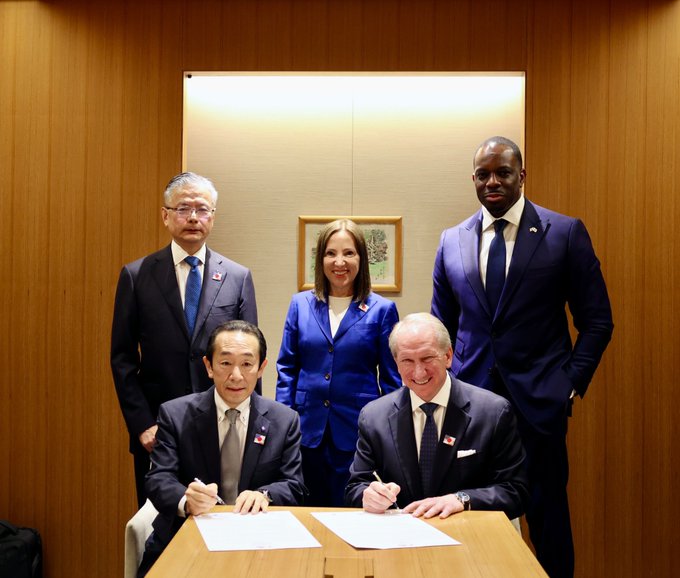MOUs Finalized During 2023 California Japan Clean Energy Trade Mission Build on Port of LA’s Pursuit of Expanded Global Sustainability Cooperation, Furthers its Long-Standing Relationships with Japan’s Ports

The Port of Los Angeles has entered into separate Memorandum of Understandings (MOUs) with the Port of Tokyo and the Port of Yokohama – to more formally collaborate on sustainability and environmental issues. The agreements were signed by Port of Los Angeles officials during the 2023 California Japan Clean Energy Trade Mission, led by California Lt. Gov. Eleni Kounalakis and Dee Dee Myers, Director of California Governor’s Office of Business and Economic Development.
“The MOUs signed this week between the Port of Los Angeles, the Port of Tokyo, and the Port of Yokohama epitomize the strong relationship between California and Japan and our shared commitment to tackling climate change,” said Lieutenant Governor Eleni Kounalakis. “California and Japan’s port partnership is a world-leading collaboration and a critical step towards achieving zero greenhouse gas emissions.”
“Global cooperation is critical if we are to make meaningful progress toward a cleaner and more sustainable maritime industry,” said Port of Los Angeles Executive Director Gene Seroka. “The Port of Los Angeles is proud of the role it has played in advancing port-related environmental technologies and supply chain decarbonization solutions, but we can do so much more with ports and other international stakeholders working together. I’m thrilled to be in Japan collaborating with our long-time partners at the ports of Tokyo and Yokohama. ”
"In 2021, leaders from the QUAD, a strategic alliance that includes Japan, the United States, Australia and India, agreed to collaborate on a green shipping network,” said Hiroya Nakano, Director General of the Port of Yokohama. “Today we are pleased to further our work on this challenge in partnership with the Port of Los Angeles, with whom we’ve have built a longstanding friendship."
"The Port of Los Angeles is our largest partner in Japan, and the work to decarbonize shipping is very important to both ports,” said Shinya Hitomi, President and CEO, Yokohama-Kawasaki International Port Corporation. “This agreement is a significant step forward as we work toward a common goal.”
“This action strengthens our fruitful relationship and will further enhance the sustainability and development of our ports,” said Toshiki Yaoka, Port of Tokyo Director General.
The MOUs with the two ports call for cooperation and sharing of best practices on environmental and sustainability initiatives, including the digitation of the supply chain to optimize efficiency and reduce port operational impacts.
Both the ports of Tokyo and Yokohama also agreed to establish a Green Shipping Corridor (GSC) partnership with the Port of Los Angeles in the coming year, an initiative aimed at reducing emissions along their respective trade routes and promoting low- and zero-carbon ships and fuels. The Port of Los Angeles has already established GSC partnerships with the ports of Shanghai and Singapore.
In addition to strengthening trade routes, maritime operational supply chain efficiencies and environmental sustainability, other specific areas of cooperation identified under the two agreements include the testing and deployment of zero-emission vehicles, cargo handling equipment and vessels; exploring energy use and alternative energy sources; and cooperating on initiatives related to pollution-reduction technologies for terminals, ocean-going vessels and drayage trucks.
The Port of Los Angeles and Port of Yokohama have a long history of cooperation, dating back to a trade agreement signed in 1969 to strengthen trade routes between the two ports. The Port of Los Angeles and Port of Tokyo formalized a Sister Port relationship in 1987.
The weeklong 2023 California Japan Clean Energy Trade Mission began March 11, and is targeting businesses in the clean energy sector to explore solutions related to climate change, renewable energy, zero-emission technologies, among other sustainable products and services.